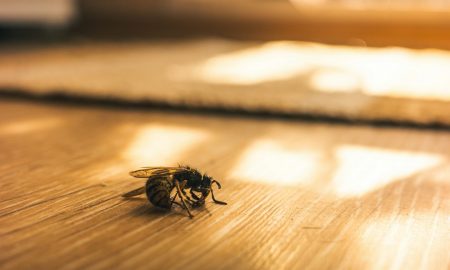“God damn you, Radney Phillips Bartlow. God damn you to hell,” Bea seethes, standing in her own front yard, but gazing at Lizzie’s. For a nanosecond she is glad her closest friend, and neighbor of 10 years, is dead. Her eyes fill with tears. “You piece of shit. You numb skulled turd. I go away for a day, a day, and you cut down your mother’s trees.” On her front porch, she picks up a decorative rock and throws it. It doesn’t even make it to her property line. She had taken the train to Chicago with Arlene, from the League of Women Voters, for a matinee of Jagged Little Pill, and when Arlene had dropped her off, she’d exclaimed, “What in tarnation?” Where there had been a yard, replete with mature trees bedecked with bird feeders, just eight hours ago, there were now exactly 14 stumps, cropped close to the ground, and carpeted in wood chips. No sign of the felled trees. Bea steadied herself, one hand on the dashboard, wordless and trying hard for air. Arlene patted her knee, knowingly, but Arlene didn’t know shit. People tried to be kind, and giving, but let’s just be real. People don’t know shit, unless you share it, and Bea wasn’t one to hand anyone a pile of her’s. It had been different with Lizzie.
Bea can’t stop looking at what is and thinking about what was. The sun sets, a molten marble, so the temperature drops, and a pink light settles on the lonesomeness of the scene. Then the back door opens, and out bounds Lizzie’s dog, Snausage, a dachshund. Although it is late November, and cold enough to be calling for an ice storm, Radney steps out too, shirtless, his beer gut hanging over mesh athletic shorts. His socks are off kilter and not matching; one long athletic sock with stretched out elastic accordions around his ankle, and the other is an ankle sock with a green pom-pom. He waves. He. Waves. Smiles. Like business as usual.
She knows too much about Radney, and too much about how much Lizzie loved him even though he was the cause of much disappointment and heartbreak. He was always chasing something that would fix his life and he had zero follow through. There was the hot dog cart Lizzie bought him: Radney’s Rods. Then the yoga certification program he dropped out of. In Bali. She’d funded his dream of teaching ESL in Japan, and flew him home after a week. She’d bought him a van, to live in, and traverse the U.S. only to have him burn out the engine in less than a year because he never got the oil changed. He had moved back into her basement a month before she died, and his video games had kept Bea up into the early hours of the morning. It was the only splinter that had wedged between her and Lizzie.
Lizzie explained, over coffee in her cozy breakfast nook, just a month ago, that he was struggling with a lack of meaning and purpose. Give him some time. But who had time? They were 76 years old! This was Bea’s time. She did what she was supposed to do her entire life, and inside, she thought maybe, just maybe Lizzie needed to stop coddling her adult son. Lizzie sighed that he was a dreamer, but Bea always thought he was a short-sighted schemer milking his mom financially. Maybe Lizzie held her tongue with a patience Bea would never know, or used words coated in mother love, but Bea sure hadn’t. When Radney came up to the kitchen, sleep tussled at 2:00 p.m. for a Mountain Dew, she’d said point blank that she’d call the cops if he didn’t start playing his video games with headphones on. Maybe his mom put up with such a lack of regard, such a total dismissal of others, but she sure as shit wasn’t. That deflated him. She saw it happen.
He stopped glugging his electric green soda, and turned to look at her with narrowed eyes. “Fine,” he wheezed, “Geez. You could have asked nicely.”
“I could have asked nicely for something I shouldn’t have to ask for in the first place? Are you serious? Your machine gunning at high volume shakes my house! How old are you? When will you join us adults in the adult world? It’s noise pollution. How hard is it for you to think about the mother whose house you are living in? For free. Or your elderly neighbor? Anyone besides you?”
Lizzie had jumped in then, “That’s enough, Bea. I can handle it. Stay out of it.”
Bea had snorted. “You aren’t handling it. Three nights this week I had to put in ear plugs. I won’t stay out of it because it is impacting me. Sleep is hard enough without a middle-aged man addicted to video games, next door, making it impossible.”
Radney stood there like a lump of flesh, in boxers that had parrots printed all over them. He was completely bald on top but had fashioned his monk’s fringe into a tiny ponytail. He stood, mouth open, his Mountain Dew hanging limply near his knees. On one shoulder and upper bicep there was an unfinished tiger sleeve tattoo. Part of it was outlined, and part of it was filled in. Its mouth was open to show huge teeth and then there was a word bubble that read, “MEOW.”
“Let’s reconvene tomorrow, same time, same place with clearer heads and kinder hearts,” Lizzie had said, standing up and taking her coffee cup to the sink, keeping her back to Bea. She had placed both hands on the sink, as if steeling herself or propping herself up. She rounded her shoulders and dropped her head, like she was weary. Disappointed in Bea more so than Radney, which seemed unfair. Bea had left, wordlessly, and though she knew Lizzie was watching her, she didn’t turn around. She was stubborn like that, and she needed time to soften. To work the splinter out from under her nail. She worked the hurt pretty good that night, but resolved finally, it didn’t matter. Radney was something she’d have to accept and she’d be a good friend. Listen. Not judge. She knew nothing of motherhood. She’d say so. She rehearsed an apology and a promise going forward.
The next day, she made a lemon cake. In the summer, they sat in Lizzie’s richly shaded yard, and drank chilled white wine and pitchers of iced tea and talked and read and basked in the pleasure of one another’s company. Bea had never had a friend like Lizzie, but it had been instantaneous, really. Lizzie had moved in after retiring, ten years ago, and on her first night, knocked on Bea’s door and invited her into her backyard. She had two lawn chairs, a Coleman lantern and a bottle of Widow Jane bourbon. By the second pour, they were friends.
Lizzie loved Bea’s lemon cake, and while she typically made it only for Lizzie’s birthday, Bea thought it was an appropriate apology made tangible. At 2:00 p.m., October 17th, she had walked the short distance, and tried Lizzie’s back door. They had an open-door policy. Strangely, it was locked. Had Lizzie reconsidered Bea, seen her in her true light and determined she couldn’t be her friend? Had Bea gone and fucked up the best part of her life? She knocked. Then she rang the doorbell. She shaded her eyes and peered through the pane of glass, scanning for movement. She saw feet, in pom-pom ankle socks, emerging from the hallway. She turned over the welcome mat for the spare key, unlocked the door, the lemon cake now forgotten, and she found her friend. She had screamed for Radney, again and then again, in a voice that sounded foreign to her own ears. She’d called 911, and put it on speaker, then began CPR.
When the ambulance arrived, Lizzie was breathing, and she’d held on for a day, so Radney got to say good-bye. She’ll never forgive him for sleeping through her pleas for his help, nor forget his face, once he climbed the stairs. He was a middle-aged child. She saw that. And when he began crying, she had only said he should put some clothes on, and she would drive him to the hospital. She collected Lizzie’s purse. She handled the business of family while Radney became a boneless, gelatinous, weeping mess in the waiting area.
When Radney had finally gone down to the cafeteria, Bea had clutched her friend’s hand, kissed her friend’s face (such a seeming mask without the animation of Lizzie behind it), whispered into her ear how sorry she was. Come back, she had begged, come back. Finally, she had told her, “If you got to go, go. I understand. It’s okay.”
When the sky starts spitting sleet from an oil spill of a sky, Bea goes inside. She gets her giant flashlight, brings in fire wood, and places candles strategically. She takes a hot bath, then reads with a bourbon in hand, trying again and again to let go of her vast disappointment in Radney. In life. She tries to find pleasure in the turning of the page, the vanilla and wood and orange peel in the bourbon, but there is a sick feeling in the pit of her stomach. She’ll die alone. Fine. But Jesus, this heartbreak. What a waste. All those trees, shorn. She knows the past is over, dead, and she doesn’t have to drag it around like a corpse, just like the Buddhists say. She can let it go. In her own purse is a pill bottle with half of Lizzie’s ashes in it. She’d planned to do a summer release, sprinkling Lizzie around the rooted trunks of the trees she’s loved so well. Bea squinches her eyes shut. Lizzie knew she loved her. If she could do anything though, she’d sit at that table and keep her God damned yap shut, and let Radney crawl back in his basement cave. Or, she would have placed a hand on her friend’s rounded back and said, “I’m sorry. What is it like for you? Will you tell me?” Shit in one hand and wish in the other. See which one fills up faster, her father always said. When in doubt, she decides, go grab a smoke. She goes outside with a single cigarette, a large candle lighter, and the pill bottle of what’s left of Lizzie.
She and Lizzie had allowed themselves three secret cigarettes a day—acts of rebellion she supposes and acts of savoring, and now, she finds the pleasure has all but gone because it was really about being in the bubble of those shared moments of pure contentment with Lizzie. Now, smoking is simply a reason to stand outside in the dark without being creepy. The ice coats everything in a thick sheen. The bourbon is warm in her empty belly. She’ll do what she God damn pleases, even if it means hating her best friend’s son. She owes him nothing. And okay, it’s his house now. She has to remember that and that her relationship to it, to everything really, has changed in the wake of Lizzie’s absence.
The moon is so big and hazy, as though seen through gossamer mosquito netting, and when she turns to the yard next door, anticipating before she sees it, all of Lizzie’s trees bedazzled and bediamonded by ice, an emptiness makes her gasp and hurt so that her hand, holding hard to Lizzie, clutches her heart to protect it from this awful place, this terrible God damned world, and the desolation of living. How could she have forgotten what Radney did? But she had, just for a flash. She makes herself look, and lock it in, and whispers, “Remember this. Remember. This is how it is now.”
She hears the familiar sound of Lizzie’s back door opening, and the tinkling of Snausage’s collar.
“Hurry up and make your pee, Snausage,” Radney calls.
Bea edges closer to her house, further into the shadow, but she bores him with the laser beams of hate in her eyes. She mouths, “Fucker. Tree killer.”
“Snausage, is it slippery? Make your wee-wee.” There is a pause, and then she sees Radney as he tentatively takes baby steps into the yard, wearing a stocking cap, and a t-shirt, but no pants or socks. He seems uncertain in the strange, otherworldly landscape of the stumped yard. The moon casts him in the light of dreams, and he begins singing, in an angelic voice, as he inches toward an unmoving dog, “You fill up my senses/like a night in the forest.” He crouches, like a gorilla, inches from his mother’s beloved Weiner dog, singing so astonishingly and unexpectedly sweetly, that something unknots deeply in Bea. She fights the unknotting. She struggles against it. She grips the pill bottle so hard it bites into her palm. She watches, unseen, as he picks up the dog. Cradling Snausage like a baby as he sings, “Come let me love you” and Bea remembers Lizzie, her face softened by the dappled July sunlight and a second glass of wine, as she told Bea about the closest she had come to a perfect moment of contentment, singing that God damned John Denver song as a lullaby, rocking a milk sleepy Radney, who gazed into her eyes, unblinking, mesmerized, and love, love so big it had enveloped them both, and made her feel made of light, pure light.
Lizzie’s door closes and Bea flicks her half-smoked cigarette expertly into her own yard and watches the ember burn out. Maybe, maybe, if she was a better person, she’d cup her hands around an ember like that, feed it some twigs and blow on it, and add logs, gently and with great and tender patience, until it roared. She’d think about what Lizzie would want and what Lizzie would have her do, but she’d spent so much of her life living up to others’ expectations. She was done. She knew herself, how stubborn she was, and this wooden resentment? She was bound to no one, now, to root the stump of it out of her heart. She opens the pill bottle. She wets her index finger with her own saliva, then sticks it in the ashes. It is coated with grainy bits, nothing like the ash of a cigarette. She puts that same finger in her mouth, sucks it clean, and swallows the grainy smudge. Unceremoniously, she dumps the remains of what was on the iced ground and tosses the empty pill bottle. It lands in Radney’s back yard, but Bea feels no satisfaction. From across, the sound of a video game machine gun erupts violently.
Photo by Mick Haupt on Unsplash





